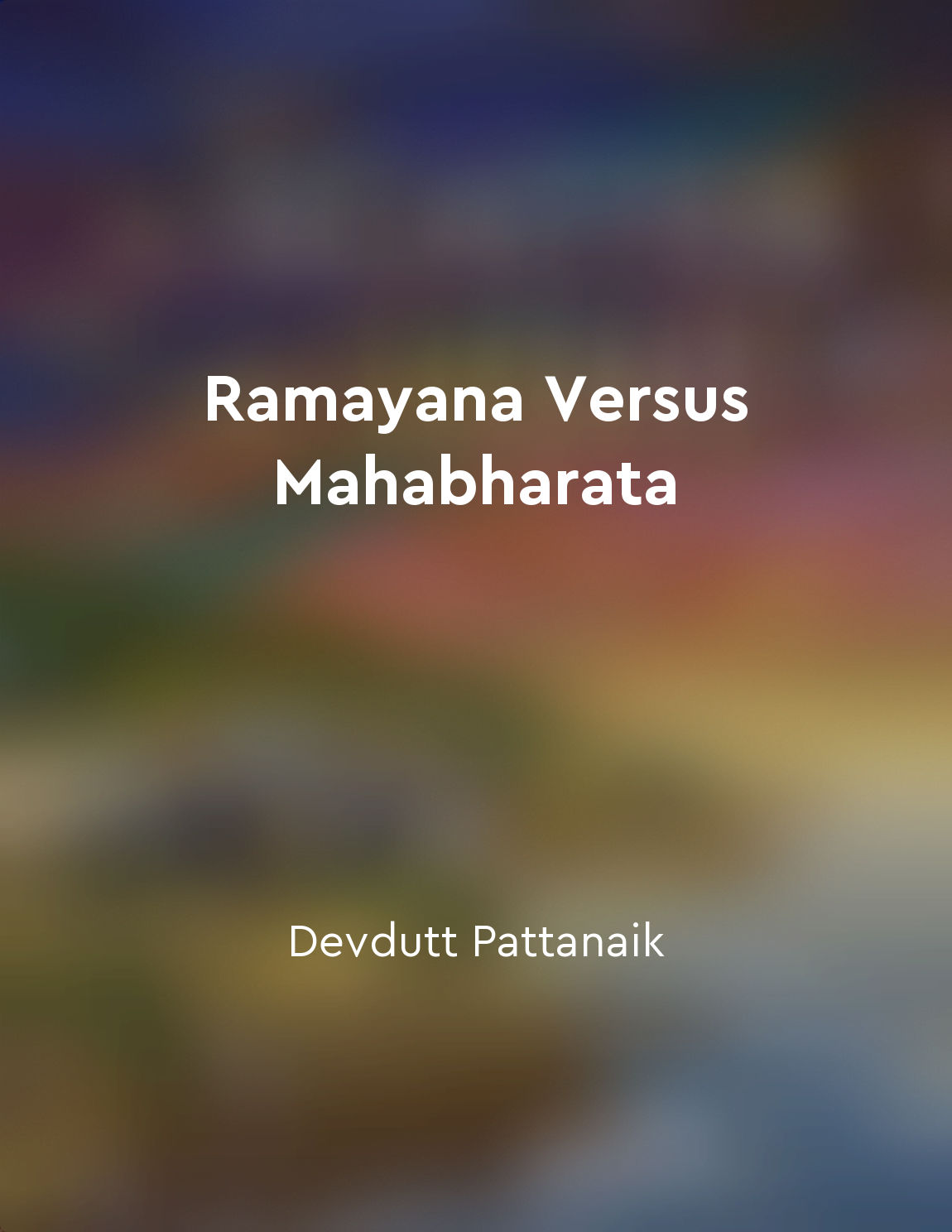Honor and respect from "summary" of The Mahabharata by Dwaipayana Vyasa
In the great epic of Mahabharata, the concept of honor and respect is deeply woven into the fabric of the narrative. Throughout the epic, we see how characters' actions and decisions are guided by their sense of honor and respect towards themselves and others. This concept is not merely a superficial display of etiquette, but a fundamental principle that shapes the moral and ethical framework of the characters. Honor and respect are not just about following societal norms or fulfilling obligations; they are about upholding one's values and principles even in the face of adversity. Characters like Yudhishthira and Bhishma exemplify this by staying true to their word and duty, even when it means sacrificing their own happiness or well-being. Their unwavering commitment to righteousness and integrity earns them the admiration and respect of those around them. On the other hand, characters like Duryodhana and Shakuni demonstrate the consequences of lacking honor and respect. Their deceitful and selfish actions lead to conflict and suffering, not only for themselves but for the entire kingdom. Their disregard for ethical values and disregard for the feelings and rights of others ultimately leads to their downfall. The Mahabharata teaches us that honor and respect are not just abstract ideals but practical virtues that shape our relationships and actions. By honoring our commitments, respecting the dignity of others, and upholding moral principles, we can create a harmonious and just society. When we live with honor and respect, we not only earn the admiration of others but also cultivate a sense of self-worth and integrity that guides us through life's challenges.- The concept of honor and respect in the Mahabharata serves as a moral compass for the characters and the readers alike, reminding us of the importance of living with integrity and dignity in a world full of temptations and conflicts. It is through honoring our values and respecting the humanity of others that we can truly embody the noble virtues of the epic and lead a life worthy of admiration and respect.
Similar Posts
Courage is the bridge between fear and action
In the realm of human experience, fear often stands as a formidable obstacle that prevents us from taking action. It is a prima...
Never trust a deceitful person
A person who is deceitful can never be trusted. Deceitful individuals are those who will lie, cheat, and manipulate others for ...
Take calculated risks to push boundaries
One must be willing to step out of their comfort zone and venture into unknown territories. It is only by taking calculated ris...
Do what is right
The guiding principle that should govern all our actions is to always do what is right. This means acting in accordance with vi...

Ramayana's Kaikeyi is manipulative, Mahabharata's Gandhari is sorrowful
In the epic Ramayana, the character Kaikeyi is portrayed as manipulative. She schemes to secure the throne for her son Bharata ...
Yudhishthira's coronation as king
After the great war of Kurukshetra, Yudhishthira emerged victorious. The kingdom was now his to rule, as the eldest of the Pand...

The power of meditation and selfdiscipline
Meditation is a powerful tool that can help us connect with our inner selves and achieve a sense of peace and clarity. Through ...
Lord Krishna's intervention
Lord Krishna's intervention in the epic Mahabharata is a crucial aspect that shapes the course of the great war. Krishna, the e...
Killing of Jayadratha
The story of Jayadratha's death in the Mahabharat is a tale of valor and determination. When Arjuna's son Abhimanyu was killed ...


